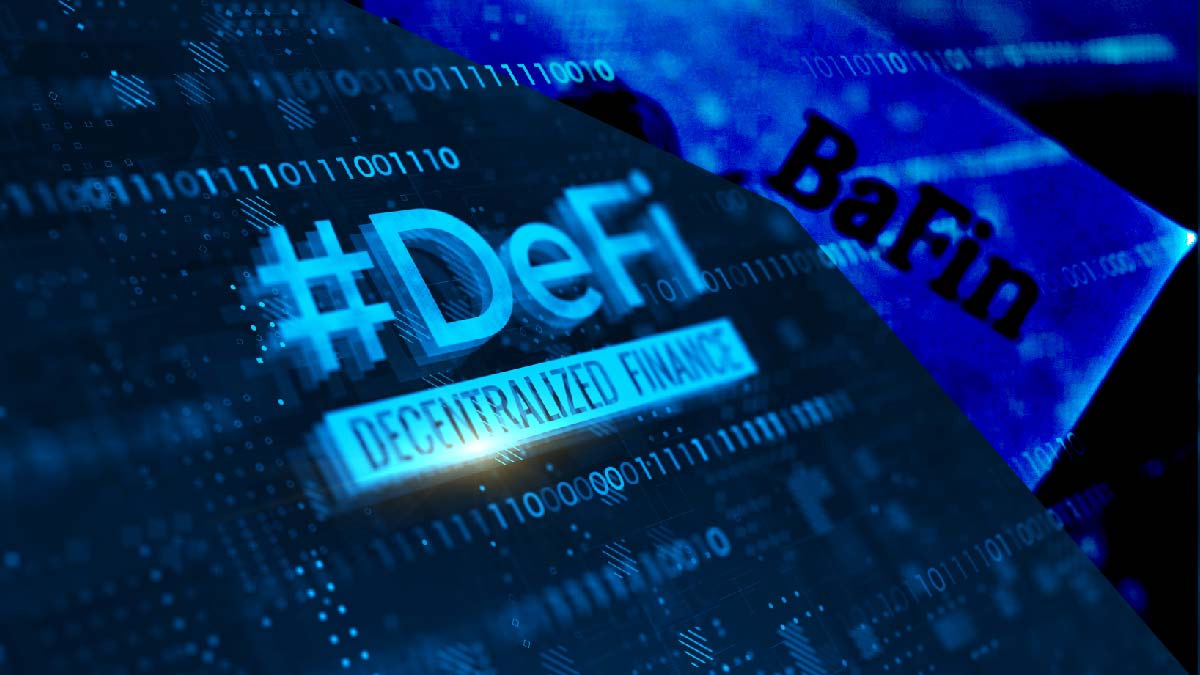Cryptocurrency
Amid crypto’s Wild West, Binance says a sheriff is needed

The cryptocurrency market gets likened to the Wild West by critics, and now a key player is asking for sheriffs to come to town.
Binance, the world’s largest exchange for trading Bitcoin and other cryptocurrencies, says it’s time for global regulators to establish rules for crypto markets. It released a list of “10 fundamental rights for crypto users” this week that it wants to guide discussions with regulators, policymakers and other exchanges.
The company acknowledges that crypto platforms have an obligation to protect users and to implement processes to prevent financial crimes, along with the responsibility to work with regulators and policymakers to set standards to keep users safe.
The call for regulation might seem strange for an industry whose popularity exploded in some part precisely because it sought to operate outside the heavy hand of governments and other authorities. But Binance CEO Changpeng Zhao, who goes by “CZ,” says more regulation for the industry is inevitable, and this allows his company to play a role in the discussions. It may also help draw in people who are still hesitant to get into crypto.
“This year, most of the regulators around the world are looking at crypto intently, and many of them are communicating with us,” Zhao said. “So we feel this is the right time” to issue a call for a global framework.
“We feel that it is important for industry players to have a seat at the table,” he said. “And we also feel that some regulations, if they’re made in a vacuum, may not have practical considerations in how they are applied, and they don’t get applied very well.”
Regulatory scrutiny of cryptocurrencies has intensified as they’ve grown more mainstream. Big businesses, professional investors and even the government of El Salvador are all buying in, even if critics struggle to see the value of digital currencies created by non-governments. They’re broadening crypto’s base beyond its initial core of fanatics and sent Bitcoin last week to a record high of nearly $68,991, more than doubling in 2021.
Binance’s call for regulation reminds some on Wall Street of the playbook that companies have followed in other disruptive industries after becoming big winners.
“They’re doing what Uber and Lyft did,” said Gil Luria, technology strategist at D.A. Davidson. “Build a business ahead of regulations. When it gets to a certain scale, acknowledge that regulation will be helpful and then help shape it.”
Zhao said that Binance welcomes regulations “for many reasons. One of those minor reasons is a selfish reason: that in a regulated industry, the few larger players will remain. The smaller players do get cut off, which is unfortunate for those guys.”
The move could also prove to be wise if Binance’s U.S. business ultimately tries to sell stock on a U.S. exchange, something Zhao hopes will happen in the next few years. A competitor, Coinbase, has already fetched a nearly $74 billion market value on Wall Street following its initial public offering this spring.
Such opportunities for wealth have drawn more new investors into crypto, as well as the eyes of regulators.
“Right now, we just don’t have enough investor protection in crypto,” Gary Gensler, chair of the Securities and Exchange Commission, said in a speech this summer while calling it the “Wild West.”
“This asset class is rife with fraud, scams, and abuse in certain applications,” he said. “There’s a great deal of hype and spin about how crypto assets work. In many cases, investors aren’t able to get rigorous, balanced, and complete information.”
Analysts said they expect Binance to agree to report transactions to U.S. regulators looking for movements involved in the financing of terrorism, among other things. One of Binance’s “fundamental rights” also calls for strict regulations on marketplaces that offer “derivatives and leveraged instruments,” which can be lucrative but also very risky trades for investors.
Most regulators around the world are focusing on “know your customer” rules, where financial companies try to verify the identity of who’s using their services, Zhao said. They’re also keyed in on protections for consumers.
But even there, “different countries do have different interpretations and different meanings for these very simple words,” Zhao said. In the U.S., for example, the emphasis for anti-money laundering is on blocking financing for terrorism, while Chinese regulators are looking more for people moving money out of the country.
Campbell Harvey, a finance professor at Duke University who recently wrote a book titled “DeFi and the Future of Finance,” said regulators are playing catch-up with complicated and fast-moving technologies, while trying to find a balance between protecting investors and not squashing innovation or driving it to other countries.
The stakes are rising to get it right. The uncertainty now around what regulation will eventually look like is keeping some big institutional investors like pension funds out of crypto. And that’s where the opportunity for even bigger money for the industry lies.
Given all the complexities, Harvey said the best solution may be for the U.S. government to create a new agency to oversee cryptocurrencies and the ecosystem around them, rather than relying on a combination of regulatory bodies.
“It’s complex, and it just doesn’t fit many of the usual regulatory models,” he said.
Zhao, who said the only cryptocurrencies he owns are Bitcoin and Binance coin, said some parts of the cryptocurrency world look more like securities, while others look more like commodities or currencies. And the ecosystem is growing by the day as people can create new tokens with just a few clicks of a mouse and keyboard.
He likened it to the early days of the internet, when people were trying to figure out what kind of media it was. Is it radio? TV? Something else?
“People may have a tendency to view crypto as a single asset, which I think is a little bit misleading,” he said. “Crypto is a fundamental technology that can improve on many of the traditional asset types.”
NEW YORK (AP)
Blockchain - Cryptocurrency
Is Cryptocurrency Legal in India?

Whether making Cryptocurrency legal in India or not is still up for debate, but the Supreme Court asked the government to be very clear about its position. The national government is drafting a bill to control cryptocurrencies and other digital assets in India. In the Union Budget 2022, Finance Minister Nirmala Sitharaman announced that the federal government would impose a steep tax of 30% on virtual assets, such as cryptocurrencies and Nonfungible Tokens, or NFTs. Budget 2022 suggested creating a new section 115BBH to impose income tax on cryptocurrencies and other virtual assets in order to implement this crypto tax.
Is Cryptocurrency Legal in India?
According to finance minister Nirmala Sitharaman, taxing cryptocurrencies does not make them legal tender in the nation. The nation has the right to impose taxes on cryptocurrency transactions, and these taxes have hit the Indian crypto market hard. The finance minister stated that an official position on regulation wouldn’t be taken until the ongoing consultations were over.
The Directorate of Enforcement (ED) of the nation is making rapid progress with its investigation into any potential foreign exchange.
According to reports, the ED is looking into every aspect of the offshore transactions carried out by the Indian exchanges. The amount of domestic money that left India is being estimated by the Indian authorities, and is a big factor in whether to make Cryptocurrency legal in India or not. Transaction histories and the companies’ involvement with foreign exchanges are hidden from view for that reason.
When an assessee’s total income includes any income from the transfer of virtual digital assets, the proposed section 115BBH seeks to stipulate that the amount of income tax that is due is equal to the sum of the income tax that is due at the rate of 30% on such income and the amount of income tax that would have been due had the assessee’s total income been reduced by the sum of those incomes, according to the Budget 2022 Memorandum.
From Assessment Year 2023–2024, the recently proposed cryptocurrency tax will be in effect. In the upcoming fiscal year (2022–2023), all of your cryptocurrency-related income will be subject to a 30 percent tax rate. For FY 2021–2022, investors must pay taxes in accordance with the current tax regulations.
With this law, the Indian financial authorities have essentially clamped down on the newly emerged financial market due to fear of financial instability, especially given the recent crypto crash.
Prime Minister Narendra Modi stated in November that cryptocurrencies could “spoil our youth” after the central bank had repeatedly warned that cryptocurrencies could pose “serious concerns on macroeconomic and financial stability.”
This view on the dangers of cryptocurrencies comes, ironically enough, despite some pretty impressive statistics, and have been taken into consideration when discussing whether to make Cryptocurrency legal in India.
One of the largest and fastest-growing cryptocurrency markets worldwide is found in India. There are 15 domestic cryptocurrency exchanges in the nation.
According to industry data, there are between 15 and 20 million cryptocurrency owners in India, with estimated holdings worth $6 billion (€5.31 billion).
Despite this, the Indian cryptocurrency market remains under stringent scrutiny that appears to persist for the foreseeable future.
Inside Telecom provides you with an extensive list of content covering all aspects of the tech industry. Keep an eye on our Technology and Blockchain sections to stay informed and up-to-date with our daily articles.
Cryptocurrency
How Facebook’s Cryptocurrency Venture Fell to its Demise

Surely, we all remember that one time when Facebook tried to enter the cryptocurrency world to expand its influence into the decentralized universe of cryptocurrency and blockchain. But those familiar with Facebook’s cryptocurrency venture also know that the dream did not even come close to fruition. Why? Let’s just start by saying many factors led to its unfortunate doomed fate, which was put into question from the get-go, but the main one has to be the project’s failure to secure the satisfaction of federal regulators.
Facebook Crypto Coin
In its first uncovering of its ambitious venture, the initial Facebook cryptocurrency name was Libra, which later on was changed, and the crypto coin was dubbed the name Diem. A term that could mean “carpe diem,” referring to the urge to make the most of the present time and not considering the thought and consequences of the future.
Seems quite fitting, given the project lasted only during its present time, did not see the light of day, and never reached its future endeavors. This can mainly be attributed to the heavy federal discontent of federal regulators and global finance officials, leading to its imminent failure in such a short period of time.
Originally, Facebook’s cryptocurrency venture was announced as a stablecoin with a value pegged to real-world assets, similar to worldly fiat currencies. The Facebook Libra cryptocurrency was intended to be adopted as a basic global currency with sparse fees, playing the role of digital money on your phone, used to pay any purchase supported by cryptocurrency. The overtone of this factor means that if the project had seen the light of day, it would’ve had its own monetary power, placing it in direct competition with the fiat currencies, such as the U.S. dollar. An element that brimmed fear into financial officials, pushing federal regulators to impose some form of authority on the project and its success to prevent any impact on the financial system’s sustainability and the overall control imposed by global central banks over money.
The Duel for Existence
The cryptocurrency of Facebook has been fighting for its existence since day one. Bombarded with deep discontent from the regulatory gaze and central bankers driven by fears that it would endorse illegal endeavors such as money laundering and privacy infringement and present itself as potential competition for global currencies’ sovereignty.
Following the regulatory scrutiny, the Facebook coin Libra was exposed to an endless chain of various ownerships, ending with a wave of migration of many corporate partners and high-level executives. The project, which Facebook’s Chief Executive Officer (CEO) Mark Zuckerberg hoped would change the world’s financial ecosystem, was soon faced with Washington’s rejection, particularly that of the Chair of the Federal Reserve and the Treasury secretary.
From there, the Big Tech giant’s respectable prestige was smeared to the ground during Zuckerberg’s testimony on Capitol Hill as he was playing all his cards to protect the name of the project. Yet the controversies of Facebook breaching Its users’ data privacy, spreading misinformation, and failing to provide robust censorship on its platform affected the stability of the project. Not to mention the fact that some of the biggest financial companies backing the project forsook, such as Mastercard, Visa, and PayPal. Then, followed by the head of Meta’s Cryptocurrency efforts, David Marcus announcement to abandon his responsibilities on the project.
With that in mind, the chain broke, and an overflow of criticism broke unto the project, with U.S. President Joe Biden expressing that he was never really a fan of the social media giant’s CEO and highly ranked Republicans and Democrats voicing their agitation with the Diem project.
Summary
The rippling effect of executives leaving Facebook’s cryptocurrency venture and politicians directing their wrath on the venture’s parent company left the Facebook coin, Libra, in a state of limbo for a while, which eventually led to Its demise. While there were many factors that contributed to its failure, the one thing that accentuated Its doomed fate is that the idea was envisioned by Facebook. The one thing that would’ve contributed to its eminent success, turned out to be the only thing catalyzing Its calamity.
Inside Telecom provides you with an extensive list of content covering all aspects of the tech industry. Keep an eye on our Cybersecurity section to stay informed and up-to-date with our daily articles
Cryptocurrency
German Financial Authority BaFin Calls for Unified DeFi EU Regulation

Executive director of Germany’s Federal Financial Supervisory Authority (BaFin), Birgit Rodolphe, has appealed for novel and comprehensive regulation of the decentralized finance (DeFi) sector across the European Union and to create a consistent DeFi EU regulation.
BaFin is Germany’s financial regulator, in charge of overseeing banks, insurance companies, and other financial organizations, which includes everything related to cryptocurrencies. BaFin is responsible for issuing “crypto custody licenses,” which are essential for companies wishing to provide bitcoin services in Germany.
Rodolphe made a point of the risks presented by an uncontrolled DeFi area to consumers in an article on BaFin’s website, calling for a uniform regulatory framework throughout EU member countries.
“One thing is clear: the clock is ticking. The longer the DeFi market goes unregulated, the greater the risk for consumers, and all the greater is the danger that critical offers that have systemic relevance will establish themselves.” Rodolphe stated.
She listed “technical issues, hacks, and fraudulent activity” as threats to consumers, claiming that DeFi isn’t as “democratic and altruistic” as its proponents believe and that DeFi products and systems are “difficult for many to grasp.” She came to the conclusion that DeFi protocols cannot function outside of rules just because they employ new technologies and claim to be outside the reach of law and governance or believe themselves to be self-governing.
Rodolphe lamented that the deregulated and chaotic DeFi, crypto, and NFT spaces had left many missing their financial livelihood. This is especially true now amid the biggest crash in crypto history that saw otherwise safe financial decisions brought low, with livelihoods lost and DeFi projects abandoned.
It is true that those who lose in the wild west, that is, the crypto market have no one to turn to when things go wrong, when assets disappear, wallets are hacked, or deposits are lost.
She went on to say that lending, borrowing, insurance, and other goods outside of the traditional financial system are all subject to license and supervision in the states where they’re sold, and she urged authorities to establish standards that will give DeFi providers legal certainty.
Rodolphe cited BaFin’s “crypto custody business” license, which allows businesses to provide cryptocurrency services in Germany.
The license was which was launched in January 2020 as an “attractive” regulatory framework for crypto enterprises. Only four crypto service providers have been licensed so far, but numerous financial institutions have applied.
Rodolphe wrote that regulatory systems in different European countries should be the same and help form a unified DeFi EU regulation.
“Ideally, such requirements would of course be uniform throughout the EU in order to prevent a fragmented market and to leverage Europe’s entire innovation potential.” She emphasized.
Rodolphe drew the conclusion that new DeFi laws mustn’t be weaker than the existing standards for traditional financial goods, as this might make DeFi products more appealing to businesses from a regulatory standpoint.























